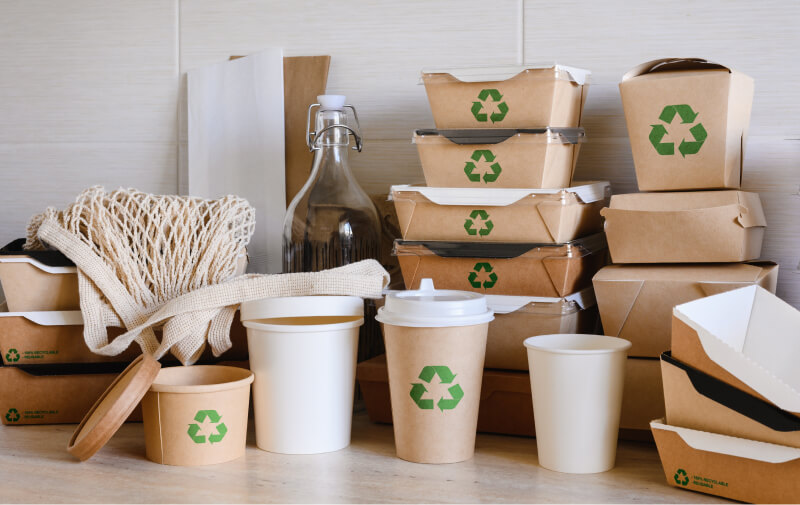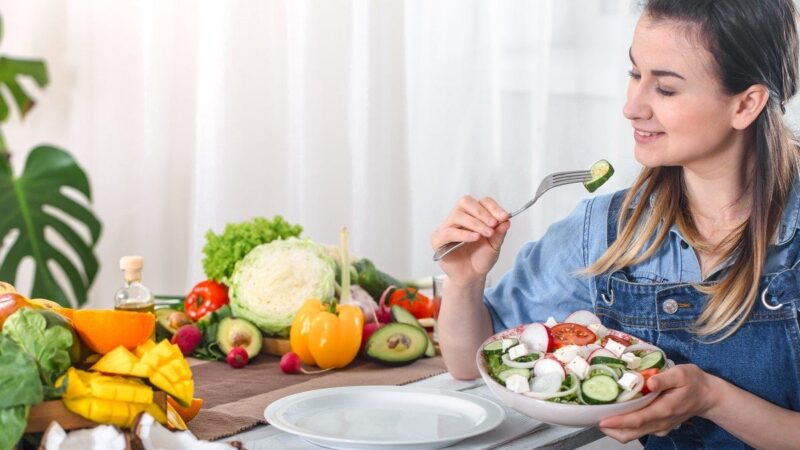What Is Compostable Food Packaging and Why It’s a Smart Choice

In today’s eco-conscious world, the demand for sustainable solutions is growing rapidly—especially in the food industry. One innovative approach leading the way is compostable food packaging. Whether you run a café, deliver meals, or manage a food brand, the type of eco friendly food packaging you choose matters. Compostable packaging not only protects your food but also helps protect the planet.
Unlike traditional plastic or styrofoam containers, compostable packaging is made from natural, plant-based materials like cornstarch, sugarcane, bamboo, or PLA (polylactic acid). These materials break down in composting conditions, turning into nutrient-rich soil instead of polluting landfills or oceans. By switching to compostable alternatives, businesses can show responsibility, appeal to green-minded consumers, and meet emerging environmental regulations.
In this article, we’ll explore what compostable food packaging is all about and dive into 10 key benefits that make it a smart, forward-thinking choice for businesses and customers alike.
What is Compostable Food Packaging?
Compostable food packaging is designed to naturally break down into organic matter when disposed of in the right composting conditions. Unlike recyclable plastics that require industrial processing or non-degradable materials that sit in landfills for decades, compostable packaging disintegrates into water, carbon dioxide, and compost—a process that typically takes 90 to 180 days in commercial composting facilities.
The most common materials used in compostable packaging include:
Sugarcane bagasse (a byproduct of sugar production)
Cornstarch (used to make bioplastics like PLA)
Bamboo fibers
Palm leaves
Recycled paper and cardboard with eco-friendly coatings
These materials are not only safe for food contact but also derived from renewable sources, making compostable packaging a truly sustainable option. Importantly, compostable is different from biodegradable. While all compostable items are biodegradable, not all biodegradable items are compostable—compostable materials break down faster and leave no toxic residue.
1. Reduces Environmental Pollution
One of the biggest benefits of compostable food packaging is its ability to reduce pollution. Unlike plastic or foam containers that take hundreds of years to decompose and often end up in oceans or landfills, compostable packaging breaks down quickly and safely.
By switching to compostable options, businesses can play a major role in lowering the amount of waste that harms marine life and pollutes ecosystems. It’s a direct and effective way to reduce your environmental footprint.
2. Supports a Circular Economy
Compostable packaging encourages a circular approach to waste. After use, the packaging is composted and returns to the earth as nutrient-rich soil. That soil can then be used to grow more plants, which may eventually be turned into more packaging.
This closed-loop system reduces dependence on fossil fuels and non-renewable materials while promoting sustainability at every stage—from production to disposal.
3. Appeals to Eco-Conscious Consumers
Today’s consumers are increasingly aware of environmental issues. Many prefer to buy from brands that align with their values. By using compostable packaging, your business shows a clear commitment to sustainability, responsibility, and innovation.
This eco-friendly move can boost your brand image, increase customer loyalty, and even attract new audiences who care deeply about the planet.
4. Meets Regulatory and Market Demands
Governments and municipalities around the world are tightening regulations on single-use plastics. In some regions, plastic food packaging is already banned or heavily taxed. Compostable packaging helps companies stay ahead of these rules and avoid fines or restrictions.
Being proactive and switching to compostable options now can future-proof your business as environmental standards become stricter across industries.
5. Safe and Non-Toxic for Food Use
Compostable food containers are made from natural, food-safe materials that do not leach harmful chemicals into the food they contain. Unlike some plastics that may release toxins when heated, compostable items remain safe even when used for hot dishes.
This makes them a better choice for both customer health and environmental safety, especially in takeout, delivery, and catering services.
6. Helps Reduce Waste Management Costs
Because compostable packaging breaks down naturally and turns into compost, it can ease the burden on municipal waste systems. Businesses that compost their waste or partner with composting services can help divert significant volumes of trash from landfills.
In some cases, composting services may cost less than traditional waste removal, helping businesses save on long-term waste management expenses.
7. Improves Brand Reputation
Switching to compostable packaging sends a strong message that your company cares about the environment. This positive branding can open doors to partnerships with like-minded organizations, attract media attention, and even lead to awards or certifications in sustainability.
A green reputation isn’t just good for the planet—it’s great for business growth and long-term trust.
8. Customizable and Visually Appealing
Compostable packaging doesn’t mean compromising on looks. In fact, many compostable materials have a clean, natural aesthetic that appeals to modern consumers. Plus, they can be custom printed with your logo, message, or design using soy- or water-based inks.
From kraft paper boxes to molded fiber trays, compostable options are versatile and can be branded just as effectively as traditional plastic packaging.
9. Reduces Carbon Footprint
Many compostable materials are made using less energy and fewer emissions compared to petroleum-based plastics. Since they come from renewable sources, their carbon impact is far lower during both production and disposal.
Choosing compostable packaging is a great way to lower your company’s overall carbon footprint and contribute to climate-positive goals.
10. Encourages a Culture of Sustainability
When businesses adopt compostable packaging and eco friendly cake decorating supplies UAE, it often sparks wider changes. Employees become more environmentally aware. Customers start asking more questions about sustainability. Suppliers may even offer greener alternatives.
In other words, compostable packaging can become a catalyst for positive change, pushing your entire supply chain toward more responsible practices and building a stronger sustainability culture within your company.
Compostable food packaging is more than a trend—it’s a smart and responsible solution that aligns with modern environmental values. As more businesses shift toward sustainability, compostable containers offer an effective way to meet growing demands for safety, convenience, and eco-friendliness.
From reducing pollution and waste to enhancing your brand’s image and appeal, the benefits are both practical and powerful. Whether you’re running a small food truck or managing a large restaurant chain, adopting compostable packaging is an investment in the health of the planet and the future of your business.







